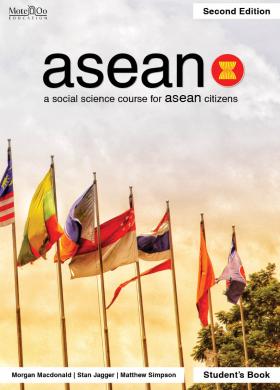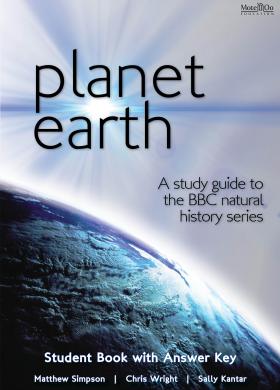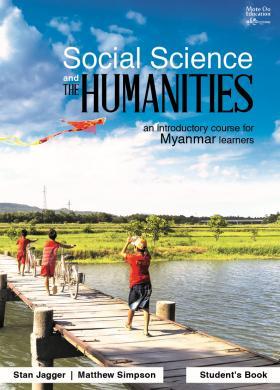
ASEAN (second edition) is a social science course. It looks at the Association of Southeast Asian Nations from many perspectives – historical, geographical, economic and political. It aims to give learners a broad understanding of the role that ASEAN has in their lives and communities. Its three chapters cover:
- Southeast Asian history as it relates to ASEAN;
- how ASEAN works;
- current issues facing ASEAN and Southeast Asia.
This course encourages students to build skills as well as knowledge. Activities include map work, analysing and creating charts and graphs, working with data, interpreting cartoons and forming and expressing opinions through debates and discussions.
This book also contains a glossary and full-colour regional maps. Major themes and learning goals are listed for teachers and learners. It works for both classroom use and for self study.
The updated second edition has improved maps, charts and other visual elements, as well as texts that have been revised and updated for the current year.
Download English:

Planet Earth is a unique resource. It has 11 units, each based on an episode of the award-winning BBC series Planet Earth. Each unit helps to increase students’ understanding of the main themes of the episode. Themes focused on in the book and TV series include adaptation, evolution, reproduction, the food chain, climate change and animal classification.
Each episode and unit looks at a different biome or habitat. At the beginning of the course are key knowledge and skills goals and a short introductory unit.
At the end of each unit are skills-development activities and additional reading texts about relevant topics and similar issues facing Myanmar today. Each unit also has a English-Myanmar glossary of key words.
It is perfect for use in an English, science or social science class.
Planet Earth contains an answer key and can be used for self study or classroom use.
Download English:

Social Science and the Humanities is an introductory social science course. It looks at several key areas of study in social science, such as economics, development and public health policy, and their impacts on society and the environment. Of specific focus in the humanities’ is their relation to social science, the role of ethics in society, and core philosophical ideas that can be found across cultures.
This course promotes skills as well as knowledge. Activities include map work, working with data, charts and graphs, interpreting cartoons, case study analysis and expressing opinions through groupwork and discussions. Critical reasoning, research and the presentation of students’ ideas are encouraged throughout.
This book has an English/Myanmar glossary of key terms. Major themes and learning goals are listed for teachers and learners.
The Social Science and the Humanities course also includes a teacher’s book with instructions, an answer key, ideas for additional activities and further reading.

